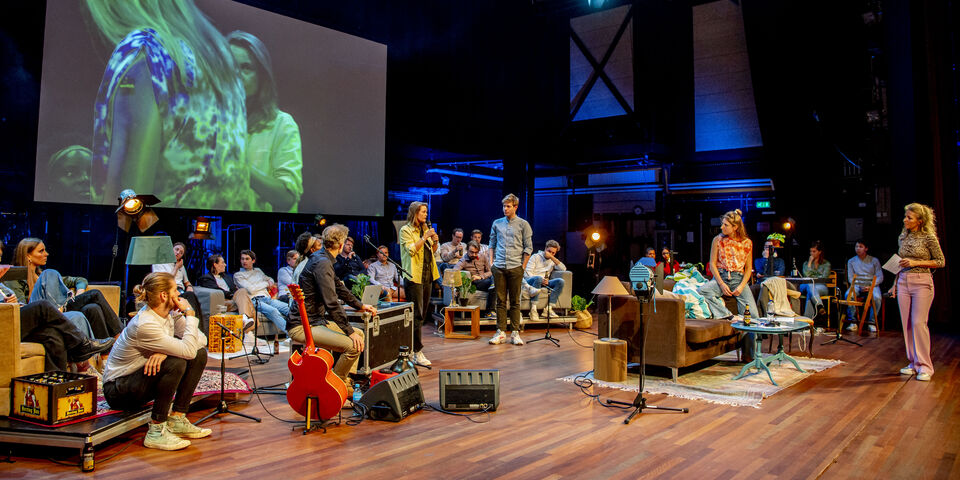Theater play about social safety for students
Be it an unpleasant remark or sexually transgressive behavior, theater play ‘TIME OUT: Social Safety at TU/e’ deals with social safety for students. The play, which is part of Diversity Week, will be performed twice in the Blauwe Zaal next Tuesday. The scenes are based on experiences from students at four universities, theater maker Frederiek Voskens says. Naomie Amsing collected personal experiences from students at TU/e.
Theater group TIME OUT makes research theater. This means that the group collects data during the performance as well as during the meetup afterwards. “One of our previous theater plays, which we also performed at TU/e, dealt with stress and performance pressure among students. Our research showed that social unsafety is both a cause of stress and the consequence of high performance pressure. It’s the story of which came first, the chicken or the egg,” says Frederiek Voskens, creative leader at TIME OUT.
Over the past couple of years, recently graduated Mechanical Engineering student Naomie Amsing focused her attention – in her capacity of Groep-één member and student assistant – on student wellbeing and the role of social safety. “I remember that first play about stress, back in 2018, and I remember how many students recognized their own situation. That’s why I called Frederiek in 2020 and asked her whether a play about social safety might be good idea.”
Voskens: “A research report about social safety at the UvA was published around the same time, and it contained some rather shocking figures. We eventually made the play in collaboration with TU/e, UvA, TU Delft and Leiden University. Expertise center Inclusive Education (ECIO) is our research partner, and they collect the data during performances and subsequently process it.”
Not okay
At the request of Voskens, Amsing and a few fellow students collected experiences of students at TU/e with regard to social safety. Does she have an example? “Some study associations, as well as some other associations, still have antiquated, misogynistic rules in their statutes, such as the rule that women aren’t allowed to touch certain objects. Those rules haven’t been followed for years, which is why no one bothered to actively remove them from the statutes, but sometimes – after a bit of drinking – female students suddenly get confronted with these rules. I even heard a story about a female chair who was forced to leave the meeting room.”
This is exactly the type of problem we’re dealing with, Voskens believes: “Things that simply aren’t okay, even though we all kept pretending for years that they were.” In short: the grey area. “We all understand what’s wrong when it comes to black and white issues. We agree on that. But the important thing is to start a conversation about the ‘grey’ situations, where things feel uncomfortable.”
Voskens also noticed that many of these situations are delicate – what if someone didn’t mean to do or say anything wrong? what are we still allowed to say? Voskens: “We, the cast, were regularly confronted with ourselves as we were making this play. That was an intense time, and we’ve had some good and serious discussions.”
Discussions afterwards
Similar discussions will take place after the performances, with audience members. “We will continue to develop the play, based on the audience’s response,” Voskens says. Amsing hopes that the student population will be broadly represented in the audience. “Including students who haven’t experienced anything unpleasant themselves. The play gives you an idea what it can feel like to someone else.”
The performances at TU/e, which were organized by Studium Generale, Groep-één and Diversity Week, take place on Tuesday 4 October at 15:45 and 19:30 hrs. in the Blauwe Zaal in the Auditorium. Tickets are free. Discussions afterwards will take place in the TIME OUT Café, which was set up in collaboration with TINT.
TIME OUT’s theater play, incidentally, is not connected to Mindlab, which deals with the same topic, only for university employees instead of students. Performances of Mindlab took place last July at TU/e.
Photo: made during the TIME OUT performance at TU/e in 2018


Discussion